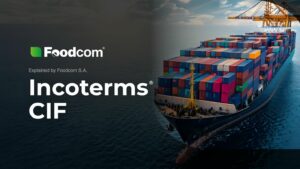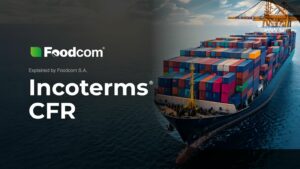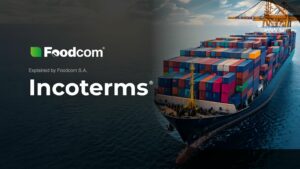CFR – what is it?
CFR, or “Cost and Freight”, is a term used in international trade representing a specific type of contractual agreement between sellers and buyers. Under CFR, the seller is responsible for arranging and paying for the transportation of goods by sea to the designated port of destination. However, once the goods pass the ship’s rail at the port of origin, the risk of loss or damage transfers to the buyer.
Most common questions
1. How does CFR differ from other shipping terms?
CFR is one of the many Incoterms (International Commercial Terms) used in international trade to define responsibilities and liabilities between buyers and sellers. Unlike terms like CIF (Cost, Insurance, and Freight) where the seller also pays for insurance, under CFR, the buyer is responsible for insuring the goods. Another difference is FOB (Free On Board), where the risk transfers to the buyer when the goods are loaded onto the ship, but the freight cost isn’t covered by the seller.
2. Why is it important to understand CFR in the food, feed, and industrial sectors?
In sectors like food, feed, and industry, the products often have specific storage and transportation needs, and any damage or delay can result in significant financial losses. Understanding terms like CFR helps businesses ascertain their responsibilities, manage risks, and ensure that the goods reach their destination in optimal condition.
3. What factors should be considered when using the CFR term?
Before opting for CFR, both sellers and buyers should consider factors like the stability and reliability of transportation routes, the nature of the goods, the potential risks during transit, and insurance coverage. Additionally, understanding local regulations at the destination port can prevent unforeseen challenges.
4. Who takes care of insurance under CFR?
Under the CFR term, while the seller covers the cost and freight to transport the goods to the destination port, the responsibility for insuring the goods lies with the buyer. It’s crucial for buyers to ensure they have adequate insurance coverage, especially considering that the risk transfers to them once the goods pass the ship’s rail at the origin port.
5. Can CFR be used for any mode of transportation?
No, CFR is specifically tailored for sea or inland waterway transport. For other modes of transportation, different Incoterms, such as CPT (Carriage Paid To), might be more appropriate.




